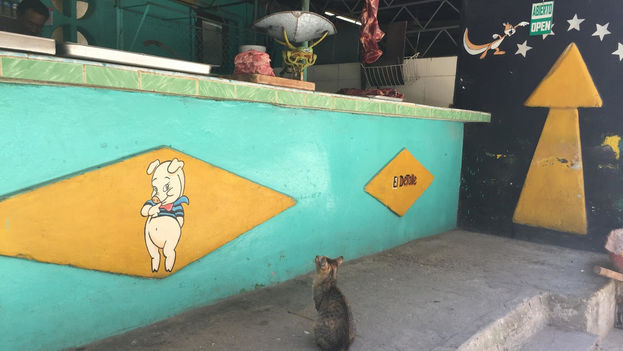
![]() 14ymedio, Marcelo Hernandez, Havana, 10 May 2017 — Meat has almost magical connotations in Cuban culture. When children get sick, the grandmothers make them a good chicken soup or a broth with a piece of beef. If someone feels weak they recommend eating a steak and there is no more recurring dream for these homes than to look out for a dish where they mix the masa de cerdo, ropa vieja and tasajo.
14ymedio, Marcelo Hernandez, Havana, 10 May 2017 — Meat has almost magical connotations in Cuban culture. When children get sick, the grandmothers make them a good chicken soup or a broth with a piece of beef. If someone feels weak they recommend eating a steak and there is no more recurring dream for these homes than to look out for a dish where they mix the masa de cerdo, ropa vieja and tasajo.
This fascination with the meat has increased due to the shortages of the product in the last decades. The deterioration of the national livestock industry and the restrictions on farmers trading directly in beef have made this an ingredient that is missing in kitchens and highly prized in the informal market.
Families are divided between those who manage to eat meat once a week and those who only see it pass by their tables a few days a month, or even year. On this island social differences are expressed in the form of cutlets, sirloin and fillets. There are those who can barely access products derived from pork and those a little higher on the economic scale and can be permit themselves a piece of beef.
While in other countries, vegetarians and vegans proliferate, many Cubans consider themselves carnivorous. A definition that is pronounced with a certain vibe, salivating and showing teeth, especially those fangs that are used a few times a year.
